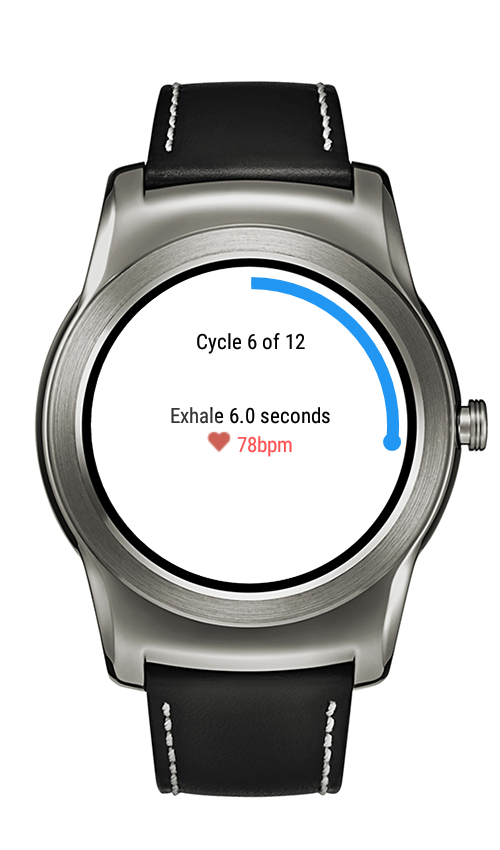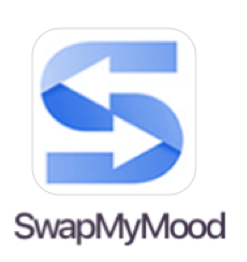Shepherd Center’s App Factory Fuels Mobile Solutions for People with Disabilities
/These days, it seems there’s an app for just about everything. Apps used for fun and entertainment – think YouTube, Spotify, Instagram and Messenger – are among the most downloaded. But others are being designed to meet the unique needs of people with brain or spinal cord injuries.
Shepherd Center is playing a pioneering role in advancing such innovative mobile solutions through its App Factory – a tech development initiative that brings together rehabilitative medicine experts and app developers with the intended user – people living with disabilities – at the center of all efforts.
“With the advent of the iPhone and other smart devices that followed, we now have platforms to support mobile apps, and it’s opened tremendous opportunities for our patients,” says Mike Jones, Ph.D., vice president of clinical research and assistive technology at Shepherd Center. “But amid the explosive growth of mobile healthcare apps, technologies must evolve and/or be adapted so that people with disabilities can use them.”
To date, more than 35 apps have emerged from the program with more than 850,000 downloads. Early efforts by Dr. Jones and his team have focused on developing app-based technologies to make specific mobile or wearable devices more useable and accessible to a person with a disability or limited dexterity.
The success of Shepherd Center’s App Factory has garnered national attention and was recently awarded a five-year $2.375 million grant from the National Institute of Disability, Independent Living and Rehabilitation Research in the U.S. Department of Health and Human Services.
The grant will allow the App Factory to develop, test and deploy several mobile health apps per year that target high-priority needs based on patient feedback and surveys. The goal is to create apps that can meaningfully help users better manage their health, improve function and quality of life. The hope, too, is that through the App Factory model, which typically doesn’t award funds until the app is available to the public, will generate some healthy competition among leading mobile app developers to assure their technology stays current.
“With the App Factory, we’ve opened it up to the whole market of app developers in the United States and Canada – academic centers, but also private businesses and tech start-ups, too,” Dr. Jones says. “They first must validate their idea and how their particular solution might work, conduct extensive user testing to demonstrate that it works and then publish it in the App Store or Android marketplace to demonstrate efficacy – that people have downloaded the app, are using it and that it’s meeting their needs.”
There will also be a central website with information about curated apps that are suitable for people with disabilities, as well as publications documenting the effectiveness of select mobile healthcare apps in improving functional outcomes.
Tracey Wallace, MS, CCC-SLP, project director of the App Factory and a speech pathologist at Shepherd Center, led the development of the BreatheWell Wear app, an Android Wear smartwatch app that provides discrete visual, tactile and auditory guidance to pace breathing for stress management, including showing users their heart rate in real time.
Thanks to user input into the design, the app allows users to play their own calming music, set multiple reminders to practice breathing and view a progress tracking screen that allows them to set a goal and monitor progress. The team behind developing the app hopes that a future version will also anticipate periods of higher stress and prompt users to breathe deeply to stem a panic attack.
“Everyone we’ve had test the app says they want to keep using it,” Wallace says. “It’s like having a personal breathing coach, and our patients tell us it really helps them – whether it’s overcoming fears of going places, managing anger or calming their anxiety.”
For more information on assistive technology research, click here.
Here are a few of the apps developed with support from the App Factory:
BreatheWell Wear
Assists with: managing stress through diaphragmatic breathing for people with mild traumatic brain injury (mTBI) and post-traumatic stress disorder (PTSD).
Available on: Google Play for Android Wear smartwatches.
When people endure stress, they experience the fight-or-flight response. Their heart rate increases and breathing becomes shallow, exacerbating anxiety. Slowing their breathing, particularly when exhaling, can help calm them. BreatheWell Wear assists the user in performing deep, slow, diaphragmatic breathing by providing visual and auditory guidance to pace breathing, including a display of the user’s heart rate in real time. It also provides the user with the option of listening to calming sounds and music or selecting a song from their own music library. BreatheWell Wear allows users to set reminders to practice during periods of low stress so they can perform the breathing technique effectively when they need it most.
BEST Suite
Assists with: energy/time management, task completion, goal setting and strategy management.
Available on: iOS devices and can be found in the App Store.
Brain Education Strategies & Technology (BEST) has developed a suite of four apps designed to help people with brain injuries and other cognitive challenges learn to optimize their energy, self-regulate behavior, set goals, track strategies, and get more done at home, school and work. The apps are integrated, allowing users to easily use the entire suite or use each app independently.
More information on the BEST Suite can be found on their website here.
SwapMyMood
Assists with: problem-solving and emotion regulation.
Available on: iOS devices and can be found in the App Store.
SwapMyMood was designed to assist people with brain injury in engaging in problem-solving and emotion regulation. The app is an electronic mobile version of evidence-based tools that were previously only available in paper format. SwapMyMood guides the user through the multiple steps involved in a problem-solving and emotion regulation intervention. Links to supportive resources and tips are integrated throughout, and effective, personalized interventions can be saved for reference in future situations.
The contents of this app are based on the Short-Term Executive Plus Intervention for Executive Dysfunction developed at the Brain Injury Research Center of Mount Sinai and funded by the Centers for Disease Control and Prevention (grant no.1R49CE001171-01).
Pow!r Mount Plus
Assists with: mobility impairments due to amyotrophic lateral sclerosis (ALS), multiple sclerosis (MS), spinal muscular atrophy (SMA) or high-level spinal cord injuries.
Available on: Google Play for the Android platform and supports devices on a Wink network.
The Pow!r Mount gives users the freedom and independence to position and interact with equipment such as speech devices, laptops, phones, cameras, tablets, hydration and suction equipment.
The Pow!r Mount Plus app adds home control capabilities to the Pow!r Mount app, enabling users to control smart devices in their home using their phone or tablet. Both apps can be controlled by directly touching the screen or using accessible switches plugged into the Pow!r Mount’s End Cap.
SpeakUp: An SPL Meter
Assists with: speaking volume.
Available on: Google Play for Android operating systems.
SpeakUp is designed for people that need assistance modulating or increasing their speaking volume. The target use population are pediatric patients that have difficulty modulating the volume of their voice and children who have difficulty using a loud voice. The adjustable nature of the application allows it to be used with adults, most notably those with Parkinson’s disease.
Speech2RTT Communicator
Assists with: non-verbal communication.
Available on: Google Play for Android operating systems.
Speech2RTT® is an Android application that enables people who are deaf, hard of hearing, and non-verbal to communicate with anyone using their Android smart phone or tablet. It works over cellular networks and for Wi-Fi calling. The app captions and then streams the text of what is being said between individuals. If a user cannot speak, or opts not to speak, they can type what they want to say in real time.
Tetra Alarm
Assists with: reminders for people with spinal cord injury or other conditions or illnesses.
Available on: Google Play for Android devices.
Many people with spinal cord injuries (SCI) often have a tough time with the built-in alarm functions of a smartphone. Unfortunately, the app versions haven’t been much better. Designed for people with full manual ability, many apps are difficult to use for someone with limited dexterity. Tetra Alarm is designed so you just need to select a box corresponding to a particular time. Tetra Alarm is not only a useful tool for people with SCI, but also for people who have other injuries or chronic illnesses that have affected their memory and cognitive function.
Tummy Time Fun
Assists with: encouraging young children to spend time in the prone position.
Available on: iOS devices and can be found in the App Store.
Tummy Time Fun (TTF) is an iOS app that can be used to encourage children to spend more time in the prone position, improving postural control. During tummy time sessions, a baby/child wears a small, lightweight electronic sensor between the shoulder blades, which measures the angle of the upper body relative to a horizontal, prone position. This sensor communicates wirelessly with the TTF app that is installed on a smartphone or tablet. When the child pushes up from prone so that the angle of his or her upper body is above a preset threshold level, the app activates music or video to motivate the child to remain in that position. For video feedback, the smartphone or tablet can be placed directly in front of the baby to be in the line of sight when he or she pushes up from prone.
This website contains more information, including an instructional video.
AccessLyve
Assists with: providing real-time audio streaming for people who are blind, have low vision or are hard of hearing.
Available on: iOS devices and can be found in the App Store.
AccessLyve provides real-time audio streaming for people who are blind, have low vision or are hard of hearing.










